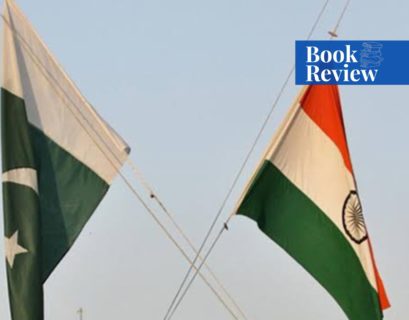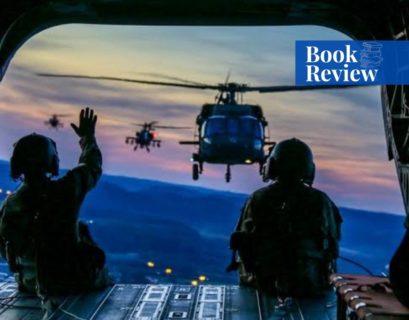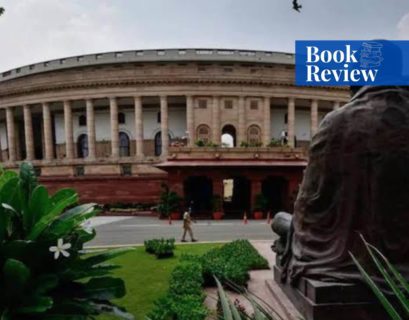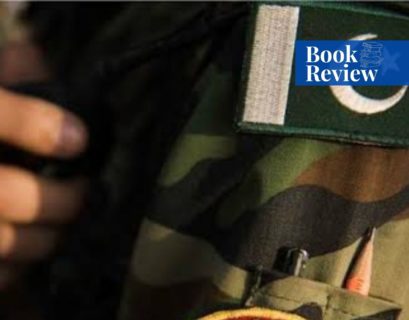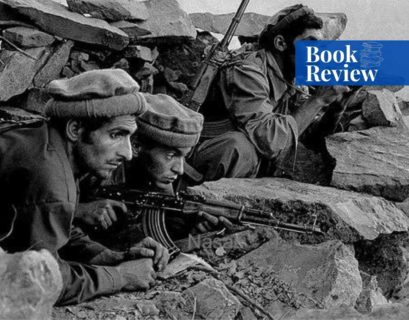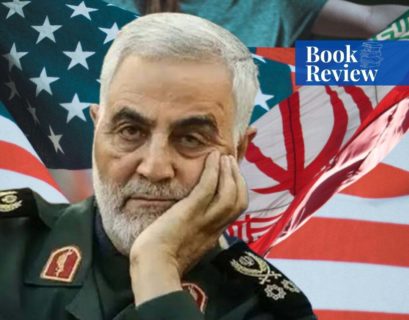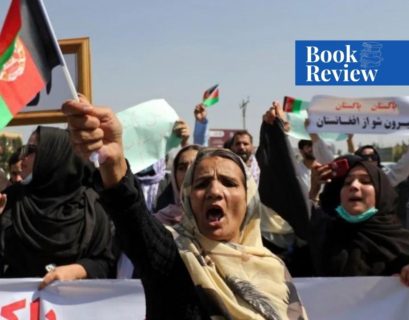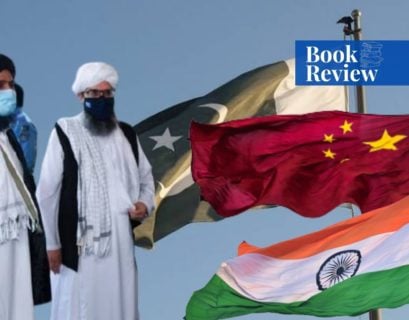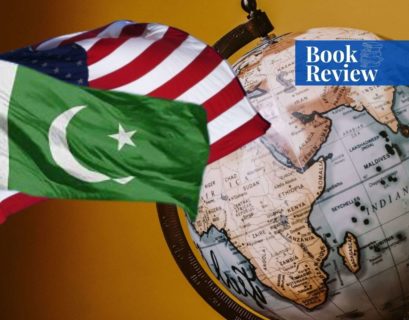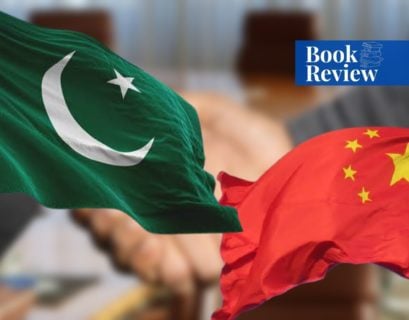World Order by Henry Kissinger
A book sought by CSS aspirants and students of international relations, Henry Kissinger’s World Order sets the stage by addressing the evolution of the state as a permanent and fundamental entity in conducting international relations.
He puts light on the significance of the Peace of Westphalia (1648) in the first institutionalising international order among states. In so doing, Kissinger deftly explains the role of the state and its enduring legacy in structuring relations between and among the states.
How Democracies Die
Steven Levitsky and Daniel Ziblett’s book “How Democracies Die” discusses what factors weaken democracy, and what ultimately causes the downfall of democracy.
Reflecting on Linz’s litmus test for undemocratic politicians, the authors put light on Donald J. Trump’s political career. To save democracy, the authors put forth two ways: mutual tolerance and institutional forbearance.
Shooting for a Century: The India-Pakistan Conundrum by Stephen P. Cohen
In “Shooting for a Century: The India-Pakistan Conundrum,” Stephen P. Cohen analyzes the future of India-Pakistan relations. Cohen argues that even after the two rival South Asian states surpass a century since their independence, the ties between them are unlikely to normalize.
The Military and Domestic Politics: A Concordance Theory of Civil-Military Relations
In “The Military and Domestic Politics: A Concordance Theory of Civil-Military Relations,” Rebecca Schiff uses the concordance theory to better understand and explore the reason for military intervention than the traditional theory of separation which has its roots in the Western system, making it incompatible for non-Western countries. She also gives due importance to institutional development and culture in understanding the civil-military relations of a state.
The Silent Coup: A History of India’s Deep State
In “The Silent Coup: A History of India’s Deep State,” Josy Joseph explains India’s democratic erosion and the role of India’s security agencies, politicians, and media in this decline. Through the case of Wahid Ali, he demonstrates how the three are intricately linked in the world’s largest democracy.
Buffalo Nationalism: A Critique of Spiritual Fascism
In “Buffalo Nationalism: A Critique of Spiritual Fascism,” Kacha Ilaiah Shepherd argues that inequality is embedded in Hinduism due to its Brahminic philosophy. He criticizes India’s caste system and compares India’s oppression of its minorities and lower castes with the buffalo. While the cow is revered in Hindu philosophy, the buffalo on the other hand is demonized. Ilaiah, while criticizing India’s “divide and rule” policy, calls for the construction of a new form of nationalism that promotes equality and justice.
The Oxford Handbook of Indian Foreign Policy
The Oxford Handbook of Indian Foreign Policy is a comprehensive book with 50 essays about India’s foreign relations since the British Raj. Both the authors and editors of this book are prominent and leading experts in India’s international relations.
India’s Saudi Policy: Bridge to the Future
P.R. Kumaraswamy and Md. Muddassir Quamar’s book, India’s Saudi Policy: Bridge to the Future, explores New Delhi’s approach and policies toward Riyadh and how they have had a significant impact in reshaping bilateral relations between India and Saudi Arabia.
The Nine Lives of Pakistan: Dispatches from a Precarious State
In “The Nine Lives of Pakistan: Dispatches from a Precarious State,” Declan Walsh unravels his findings and life in Pakistan. He explores a nation that is full of turbulence and divide, and yet so resilient.
Pakistan’s Perpetual Crisis and Civil-military Relations (2008-2012)
Dr. Nasreen Akhtar, the author of “Pakistan’s Perpetual Crisis and Civil-military Relations (2008-2012),” critically analyzes the relationship between the civilian governments and the military in Pakistan. She examines the history of Pakistan’s civil-military relations and explains how and why the state’s military became involved in the political sphere.
The Great Gamble: The Soviet War in Afghanistan (Book Review)
“The Great Gamble: The Soviet War in Afghanistan” provides an overview of the Soviet Union’s direct and indirect involvement in Afghanistan. Gregory Feifer, the author of the book, traces the events that led to the Soviet invasion in 1979 and analyzes the war itself. In doing so, he aptly explains the role of Pakistan in bringing the Soviet war to an end, and how the US’ uncalculated actions in Afghanistan led to intensifying extremism and terrorism.
The Shadow Commander: Soleimani, the US, and Iran’s Global Ambitions (Book Review)
Arash Azizi’s “The Shadow Commander: Soleimani, the US, and Iran’s Global Ambitions” is a wonderfully comprehensive book that honors the life of Iran’s greatest soldier, General Qasem Soleimani. Known as the Shadow Commander, General Soleimani’s life within and beyond Iran is recounted as well as the legacy he left for his people and country.
A Book Review of War Without Winners
Rasul Baksh Rais’s “War Without Winners: Afghanistan’s Uncertain Transition After the Cold War” explored the Afghan War through a domestic lens in 1994. It was very much ahead of its time, as its contents reminded individuals and states that only the Afghans would be able to resolve the conflict in their country.
A Book Review of 21 Lessons for the 21st Century
Yuval Noah Harari’s “21 Lessons for the 21st Century” is definitely a stand-alone book, but the author deftly develops his argument from his previous books, Sapiens ad Homo Deus. This book review introduces the book and author first before listing the 21 lessons and giving a critical analysis of the book.
Pakistan’s Foreign Policy: A Reappraisal by Shahid Amin
The book “Pakistan’s Foreign Policy: A Reappraisal” by Shahid Amin provides a comprehensive analysis of the state’s foreign policy throughout the years while keeping in mind the relations between Pakistan and India. The book explains, in great detail, how the perception of an “Indian threat” has influenced Pakistan’s decision-making. Apart from the India-Pakistan relations, Mr. Shahid Amin also elaborates on Pakistan’s role in Afghanistan after the 1979 Soviet invasion, and its relations with the Muslim countries and China.
The Leverage Paradox: Pakistan and the United States
Robert M. Hathaway’s “The Leverage Paradox: Pakistan and the United States” gives a very unique picture of the relationship between Pakistan and the United States. After a careful perusal of the events, he concludes, contrary to public opinion, that it was not the United States but Pakistan that has had an upper hand.
China-Pakistan Axis: Asia’s New Geopolitics
Andrew Small’s “China-Pakistan Axis: Asia’s New Geopolitics” describes the relations between the two Asian states. The book is an in-depth analysis of the impact of geographical factors on the past and present ties between China and Pakistan. Through his extensive research, Andrew Small has explained how this relationship is one of mutual benefit, and both of the countries involved have put themselves and their defense ahead of everything else.


